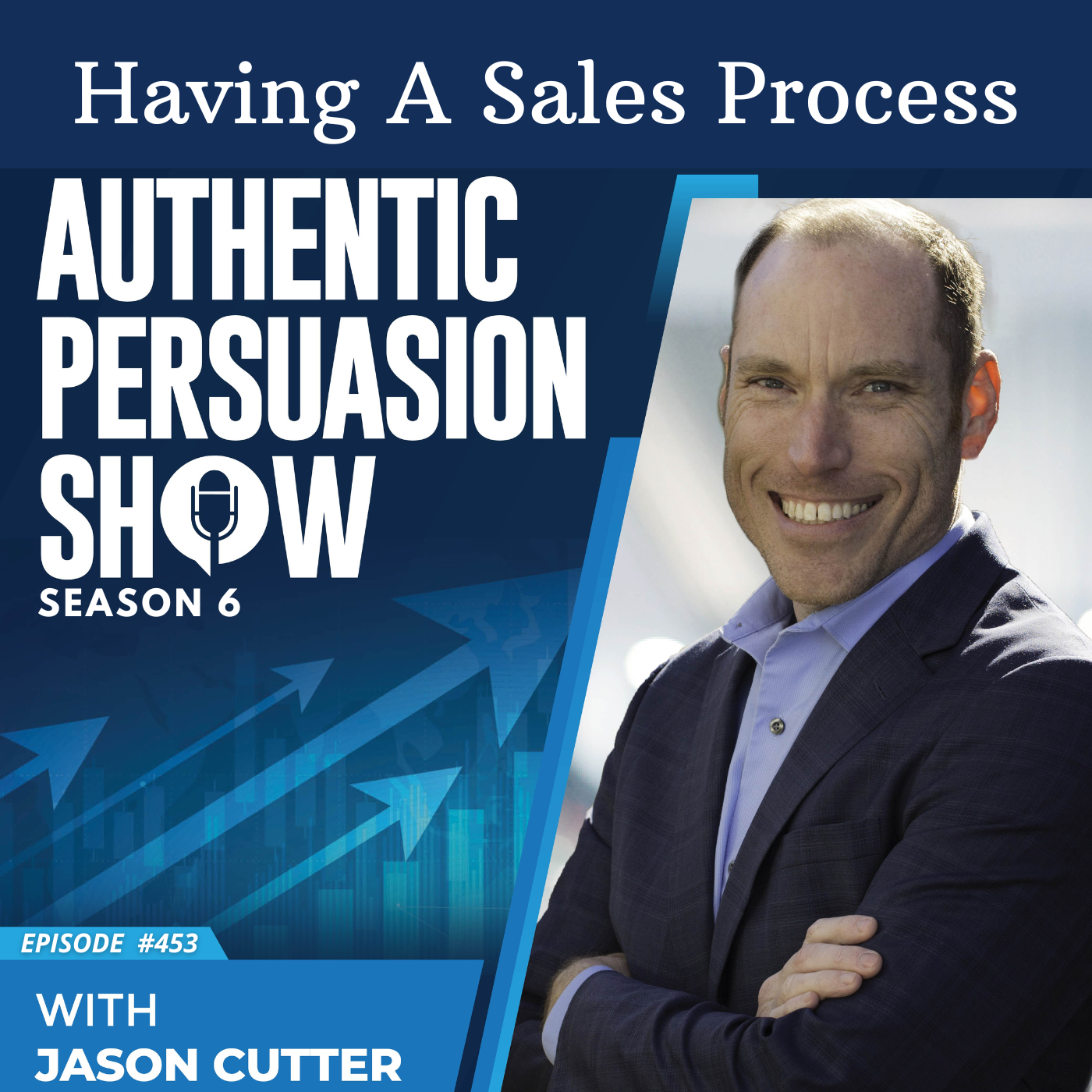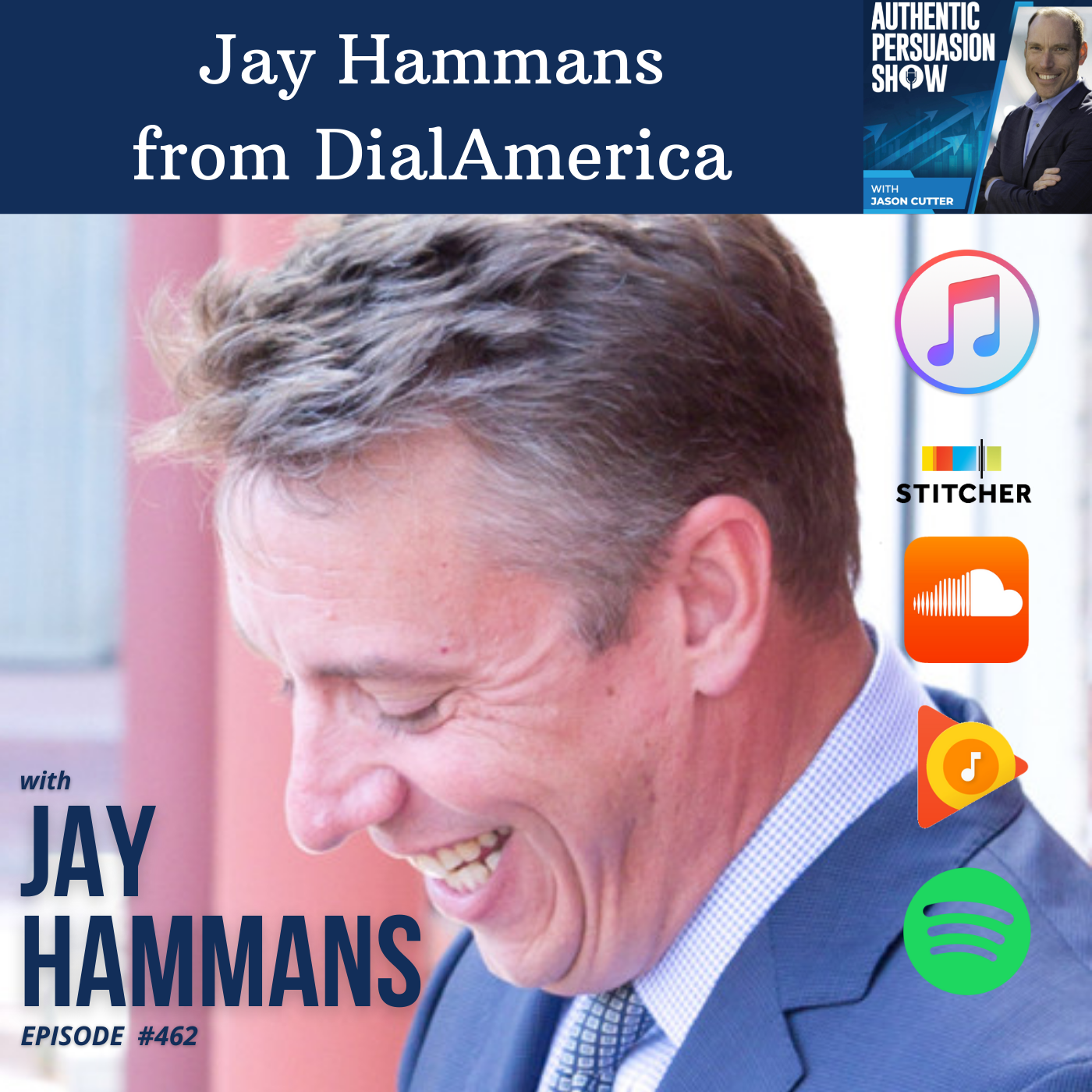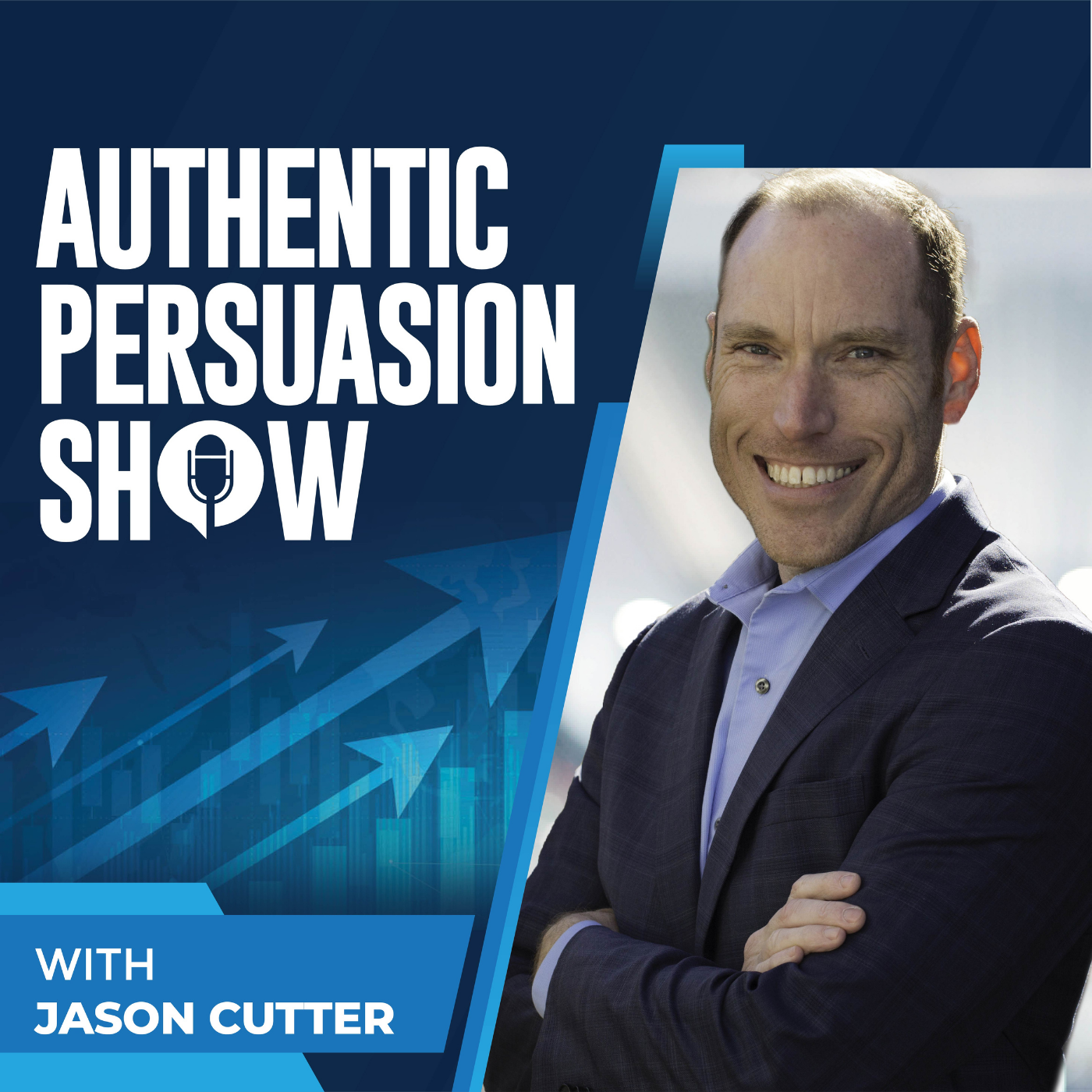Episode Transcript
[00:00:00] Speaker A: Welcome to the authentic persuasion show. On this episode, I want to replay part of a previous show. Maybe you heard the original full length episode and this could be a great refresher and reminder. Or maybe this is your first time hearing this content and the timing could be just right to help you leverage authentic persuasion today in your role, no matter what. Here's to your success.
This is the authentic persuasion show.
[00:00:24] Speaker B: You it, when we look at like the medical profession, to be a doctor, go to school for a long time, take some really hard tests, then have to be regulated, have to have insurance, there's a board, there's codes, there's ethics, there's the hippocratic oath, there's all these things you're committing to. And if you screw up any of those with any kind of malicious intent or negligence, enough, then there's malpractice lawsuits and you're held accountable, potentially being kicked out of the profession if you mess it up bad enough, right? Like that is how a profession works. Sales, there's nothing, right? It's not regulated.
It's everybody for themselves. Which is why it potentially, well, not potentially why it has the bad reputation that it does overall. Now, when we look at a doctor, so imagine you go into a doctor's visit, right? And I can think of many, many, number of doctor appointments that I've had in my life.
Luckily, I have avoided most serious issues. But even just for a general thing or something is wrong or there's some kind of pain, it's going into that doctor's visit. Most doctor appointment, maybe 1015 minutes. By the time you actually see the doctor, I'm not talking about the nurse stuff and all the beginning things. But when that doctor walks into the room, finally, and you're seeing the doctor, what happens? Right? Let's look at it and let's compare that. Think about the sales process as we talk about a doctor. And again, a doctor is not trying to sell you something, but they are trying to sell you something. So I will argue that they are a salesperson, just not in the view that we think of salespeople. And again, we think of salespeople in a gross way. So that's fair. Doctors are in a different category. So you go in, doctor shows up, finally, you're tired of sitting on that bench thing with the paper, and they show up. And what do they do? They ask you some questions, maybe break the ice a little bit, maybe not. Some doctors have no bedside manner, which is the result of no rapport, right? It seems all business. That's when you hear the doctor has a good bedside manner or a bad bedside manner. That's what we're talking about. Again, think about that in terms of sales. Then what happens is they start asking questions. They're talking about your issue, what brought you there, your pain. Then what do they do? They start listening in certain places, they start having you breathe, having you look here, checking your eyes, like, whatever the issue is, right? And I've been in doctors appointments where it's like, okay, walk across the room, walk back, walk on one leg, do this, do these balance things, depending on what the issue is. They're having you go through a bunch of tests. What they're doing is the equivalent of this question asking, probing section what we're talking about in sales. So what happens is they're just having you run through a battery of tests. They're checking, they're probing, they're asking questions. They're trying to get to the heart of the matter, of the issue, and then what it is they can solve. And now let's assume they figure out and they come up with a good diagnosis in that time frame. If we look at the conversation, which is important, is if it's a 15 minutes doctor's appointment, how much of the time does the doctor tell you about how amazing they are?
All of their degrees, their experience with other problems like yours, the patient they helped last week, that was just like yours, how does that work? Now? Typically, what happens is, if it's a 15 minutes doctor's appointment, in my experience, being in enough doctor's appointments for myself or with other people, the first 14 minutes are probably spent in a little bit of rapport, breaking the ice and then literally probing, testing, asking questions, poking, prodding, whatever it is to get to that diagnosis, 14 out of 15 minutes are most likely used for that process. Then what happens in that last minute? Because we've all been there in that last minute of the doctor's appointment. Like, okay, so based on what you said, here's what I think it is, here's what I've done before, here's the treatment, maybe here's why I think I'm the best, right? If it's something serious. So if you have, like, a tumor or it's brain related or heart related, here's why I'm the best, or here's why I can help you. Some of that trust building will definitely need to come in if it's something that requires that trust. But literally, in that last moment of the meeting, that last minute, they will say, here's what it is. Here's your diagnosis, here's the prescription. Here's what we need to do. Here's what you need to do next. Do you have any questions?
Go.
What they don't do. And this is a great lesson for salespeople. If you want to be a professional and you want to get people to care and you want to help them like a professional, the key is to not spend the first ten minutes of that 15 minutes talking about yourself. Imagine if your doctor came in and for the first 1012 minutes, they basically give you a seminar or lecture about how great they are, about how what they do works really well, about the solutions they provide, about the other people they've helped, their track record, the places they've worked, the speeches, the awards, the certificates, like all of that. Imagine if your doctor did that for the first 1012 minutes, and then they asked you some questions and then they immediately told you what you should do. A, that would probably be malpractice because it would be bad advice, and b, that would be a terrible, gross experience as a patient.
Right. I'm just guessing, and I think most people would agree, but that would be bad salespeople. That's what most are doing. And that's why it doesn't feel right. Because what's happening, if it was that way, is you don't feel cared about. You don't feel heard, you don't feel it's about you. You feel like it's about them. And again, I'm not going to get into this episode. We'll get into the next few. But when doctors don't follow a process like this authentic persuasion pathway, which is interesting and funny and challenging, because I'm talking about sales, I help call centers, but I am relating it to how a doctor is going through a process with patients and how it's literally the same framework, just a slightly different application. Right? Slightly different. Somebody's in pain, might be life and death. You're selling somebody on getting out of debt or switching their energy company, but the process the same, because we're human. And if you're a professional, you're doing it in a different way.
![[717] Applying the Doctor's Diagnostic Process to Sales](https://episodes.castos.com/salesexperiencepodcast/images/1642879/c1a-4d8w-8m7055xvfx42-tqijaq.png)


